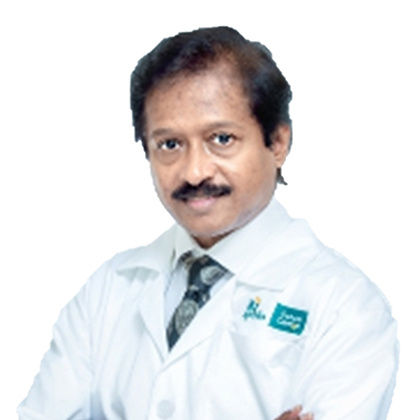Guide to Indicators Heart Disease Child
A comprehensive guide for parents and caregivers to understand the early signs and symptoms of heart disease in children. Learn what to look for, when to seek medical help, and how to support your child's heart health.

Written by Dr. Mohammed Kamran
Reviewed by Dr. Rohinipriyanka Pondugula MBBS
Last updated on 13th Jan, 2026

Introduction
As a parent, your child's health is your top priority. While we often think of heart disease as an adult concern, it can also affect infants, children, and teenagers. Recognizing the early indicators of a potential heart problem can be challenging, as symptoms can be subtle and easily mistaken for common childhood ailments. This guide is designed to empower you with knowledge. We will walk you through the key signs of pediatric heart disease, broken down by age group, to help you understand what to watch for. Knowing these indicators is the first step toward ensuring your child receives timely and appropriate care. Whether it's a congenital issue present at birth or a condition that develops later, early detection can make a significant difference in outcomes. Let's explore the signs that warrant a conversation with your pediatrician.
Understanding Pediatric Heart Disease: It's Not Just an Adult Problem
When we talk about heart disease in children, it's fundamentally different from the artery blockages common in adults. Pediatric heart conditions are primarily structural or electrical. The most prevalent type is congenital, meaning the child is born with it. In fact, according to the Centers for Disease Control and Prevention (CDC), congenital heart defects (CHDs) affect nearly 1% of all births per year in the United States. Acquired heart conditions, which develop after birth, are less common but can occur due to infections or other illnesses. Understanding this distinction is crucial because the indicators for a structural defect in an infant will differ from those of an acquired condition like myocarditis (inflammation of the heart muscle) in a school-aged child.
Congenital Heart Defects (CHDs) vs. Acquired Heart Conditions
Congenital Heart Defects (CHDs) are problems with the heart's structure that develop before birth. They range from simple issues, like a small hole in the heart, to complex malformations. Many CHDs are detected during pregnancy ultrasounds or shortly after birth. However, some less severe defects might not show obvious signs until later in childhood.
Acquired Heart Conditions are those that develop in a previously healthy heart. These include:
- Kawasaki Disease: An illness that causes inflammation in blood vessels and can lead to coronary artery problems.
- Rheumatic Heart Disease: A complication of untreated strep throat that can damage heart valves.
- Cardiomyopathy: A disease of the heart muscle that makes it harder for the heart to pump blood.
Key Indicators in Infants (Newborn to 12 Months)
Spotting signs of heart problems in newborns requires careful observation, as they cannot verbalize what they feel. The indicators are often related to how well their heart is pumping oxygen-rich blood to the body.
Consult Top Specialists
Feeding Difficulties and Poor Weight Gain
One of the most common early signs is difficulty feeding. An infant with a heart defect may:
Tire easily while sucking a bottle or breastfeeding, often falling asleep after just a few minutes.
Breathe rapidly or sweat during feeds.
Consume less milk than expected, leading to poor weight gain. This is a critical marker; if your baby isn't gaining weight appropriately despite adequate feeding, it's a key reason to discuss potential congenital heart defect symptoms with your doctor.
Cyanosis: When to Worry About Blue Skin
Cyanosis is a bluish tint to the skin, lips, and fingernails. It occurs when blood has a low level of oxygen. While some newborns have mildly blue hands and feet (acrocyanosis) which is normal, central cyanosis (a blue tint to the tongue and lips) is a serious sign that requires immediate medical attention. It's a classic indicator of certain types of critical CHDs.
Rapid Breathing and Excessive Sweating
Even when at rest, an infant with heart failure may breathe very fast (tachypnea) or seem short of breath. You might also notice excessive sweating, especially on the head, because the heart is working much harder than normal to pump blood.
Warning Signs in Toddlers and Older Children
As children grow, the indicators of heart disease can change. They might be more noticeable during physical activity.
Easily Tired During Play and Exercise
While all children get tired, a child with an underlying heart condition may fatigue disproportionately. They might be unable to keep up with peers, need to rest frequently during play, or prefer sedentary activities over running and playing. This is a common sign of a child having a weak heart.
Chest Pain, Fainting, and Heart Palpitations
These symptoms should always be taken seriously.
- Chest Pain: In children, chest pain is less common from the heart than in adults (often it's musculoskeletal or related to breathing). However, chest pain that occurs during exercise should be evaluated.
- Fainting (Syncope): Fainting during physical exertion is a major red flag and could indicate an underlying electrical problem or arrhythmia.
- Heart Palpitations: A child might describe their heart "fluttering," "pounding," or "beating too fast." If these palpitations are associated with dizziness or fainting, seek immediate care.
Recurrent Respiratory Infections
Children with certain heart defects that cause increased blood flow to the lungs (like a large hole in the heart) may be more susceptible to recurrent pneumonia and bronchitis.
The Role of Family History and Genetic Factors
A family history of congenital heart defects significantly increases a child's risk. If you or a close relative had a CHD, it's important to inform your pediatrician. They may recommend earlier or more frequent screening. Certain genetic syndromes, such as Down syndrome, are also strongly associated with a higher incidence of heart defects.
When to Seek Immediate Medical Attention: Red Flags
Certain symptoms constitute an emergency. Seek immediate medical help if your child experiences:
Turning blue (cyanosis) in the lips or tongue.
Fainting or collapsing, especially during exercise.
- Sudden, severe difficulty breathing.
- Grunting or audible wheezing.
- Severe, unexplained chest pain.
If you observe any of these red flags, do not wait. Consult a doctor online immediately with Apollo24|7 for initial guidance or proceed to the nearest emergency room.
Diagnostic Steps: What to Expect at the Doctor's
If your pediatrician suspects a heart issue based on the indicators you describe, they will begin a diagnostic process. This is not a cause for panic but a proactive step toward getting answers.
From Stethoscope to Echocardiogram
The first step is always a physical exam. The doctor will listen carefully to your child's heart with a stethoscope, checking for a heart murmur—an extra or unusual sound caused by turbulent blood flow. While many murmurs are "innocent" (harmless), some can indicate a problem. If further investigation is needed, the gold standard test is an echocardiogram. This is an ultrasound of the heart that provides a detailed moving picture of its structure and function, allowing doctors to see most defects clearly. Other tests might include an ECG (electrocardiogram) to check the heart's electrical activity, a chest X-ray, or sometimes more specialized tests.
Living with and Managing a Heart Condition
A diagnosis of heart disease in a child can feel overwhelming, but advancements in pediatric cardiology are remarkable. Many children with CHDs undergo successful corrective surgery or catheter-based procedures and lead full, active lives. Management may involve regular follow-ups with a cardiologist, medications, and in some cases, activity modifications. The key is a strong partnership between your family and your healthcare team.
Key Takeaways
- Heart disease in children is often structural (congenital) rather than related to lifestyle.
- In infants, key indicators include poor feeding, slow weight gain, bluish skin, and rapid breathing.
- In older children, watch for easy fatigue during play, chest pain with exercise, fainting, and palpitations.
- A family history of heart defects is a significant risk factor.
- Bluish skin, fainting, and severe breathing difficulty are medical emergencies.
- Diagnosis typically involves a physical exam, echocardiogram, and ECG.
- With modern treatment, most children with heart conditions can thrive.
Conclusion
Recognizing the potential indicators of heart disease in your child empowers you to be their best advocate. While this information can feel alarming, remember that many of these signs can also be caused by less serious conditions. The goal is not to create anxiety but to foster awareness. Trust your instincts as a parent—you know your child best. If you observe persistent or concerning symptoms, the most important step is to have an open conversation with your pediatrician. They can help determine if further evaluation by a pediatric cardiologist is needed. Early detection and intervention are powerful tools in ensuring a healthy future for your child. If you have any concerns about your child's heart health, you can book a physical visit to a specialist with Apollo24|7 for a comprehensive evaluation.
Consult Top Specialists
Consult Top Specialists

Dr. Tripti Deb
Cardiologist
40 Years • MBBS, MD, DM, FACC, FESC
Hyderabad
Apollo Hospitals Jubilee Hills, Hyderabad

Dr. Anand Ravi
General Physician
2 Years • MBBS
Bengaluru
PRESTIGE SHANTHINIKETAN - SOCIETY CLINIC, Bengaluru

Dr. E Prabhakar Sastry
General Physician/ Internal Medicine Specialist
40 Years • MD(Internal Medicine)
Manikonda Jagir
Apollo Clinic, Manikonda, Manikonda Jagir
(175+ Patients)

Dr. Zulkarnain
General Physician
2 Years • MBBS, PGDM, FFM
Bengaluru
PRESTIGE SHANTHINIKETAN - SOCIETY CLINIC, Bengaluru

Dr. Rakesh Gopal
Cardiologist
22 Years • “ Trained in Trans Aortic Valve Implantation ( TAVI ) from Mehmet Akif Ersoy Hospital Istanbul, Turkey “ & MD (General Medicine), FRCP (Glasglow)DNB( Cardiology), FESC, HICR Cert (Harvard University, USA), Angioplasty Training from Washington Adventist Hospital USA, Asan Medical Centre, Seoul Korea, Board certified in Cardio Oncology, ICOS- USA
Chennai
Apollo Hospitals Greams Road, Chennai
(100+ Patients)
Consult Top Specialists

Dr. Tripti Deb
Cardiologist
40 Years • MBBS, MD, DM, FACC, FESC
Hyderabad
Apollo Hospitals Jubilee Hills, Hyderabad

Dr. Anand Ravi
General Physician
2 Years • MBBS
Bengaluru
PRESTIGE SHANTHINIKETAN - SOCIETY CLINIC, Bengaluru

Dr. E Prabhakar Sastry
General Physician/ Internal Medicine Specialist
40 Years • MD(Internal Medicine)
Manikonda Jagir
Apollo Clinic, Manikonda, Manikonda Jagir
(175+ Patients)

Dr. Zulkarnain
General Physician
2 Years • MBBS, PGDM, FFM
Bengaluru
PRESTIGE SHANTHINIKETAN - SOCIETY CLINIC, Bengaluru

Dr. Rakesh Gopal
Cardiologist
22 Years • “ Trained in Trans Aortic Valve Implantation ( TAVI ) from Mehmet Akif Ersoy Hospital Istanbul, Turkey “ & MD (General Medicine), FRCP (Glasglow)DNB( Cardiology), FESC, HICR Cert (Harvard University, USA), Angioplasty Training from Washington Adventist Hospital USA, Asan Medical Centre, Seoul Korea, Board certified in Cardio Oncology, ICOS- USA
Chennai
Apollo Hospitals Greams Road, Chennai
(100+ Patients)
More articles from Heart disease
Frequently Asked Questions
Can a child have a heart defect without any symptoms?
Yes, some minor defects, like small atrial septal defects (ASDs) or ventricular septal defects (VSDs), may not cause obvious symptoms initially and might only be detected later in childhood if a doctor hears a heart murmur.
What is an 'innocent' heart murmur?
An innocent heart murmur is a common sound made by blood flowing normally through a healthy heart. It is harmless, doesn't require treatment, and often resolves as the child grows. Your doctor can usually distinguish it from a concerning murmur through examination.
Are palpitations in teenagers always serious?
Not always. Palpitations can be caused by anxiety, caffeine, or dehydration. However, if they are frequent, occur during rest, or are associated with dizziness or fainting, they should be evaluated by a doctor to rule out an arrhythmia.
How is heart disease in children treated?
Treatment depends on the specific condition. It can range from monitoring without intervention for minor issues, to medications, to procedures like cardiac catheterization or open-heart surgery to repair the defect.
Can childhood heart disease be prevented?
While congenital defects often cannot be prevented, maintaining good maternal health during pregnancy (taking folic acid, avoiding alcohol/smoking) can reduce some risks. Acquired conditions can sometimes be prevented by promptly treating infections like strep throat to prevent rheumatic fever.



